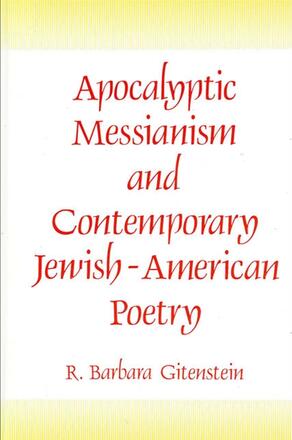
Apocalyptic Messianism and Contemporary Jewish-American Poetry
Alternative formats available from:
Description
Focusing on the rich context of esoteric Jerish literature, this collection presents in-depth analyses of Jewish-American poetry. Gitenstein defines Jewish messianism and the literary genre of the apocalyptic, describes historical movements and kabbalistic theories, and analyzes their influence as part of the post-Holocaust consciousness. Represented are works by such poets as Irving Feldman, Jack Hirschman, John Hollander, David Meltzer, and Jerome Rothenberg.
Gitenstein recounts the lives of such spectacular eccentrics and holy men as the Abraham Abulafia (thirteenth century), Isaac Luria (sixteenth century), Shabbatai Zevi (seventeenth century), and Jacob Frank (eighteenth century) and identifies their theories as part of the history of the literary apocalyptic genre—the literature of exile, the literature of catastrophe.
R. Barbara Gitenstein is Associate Professor of English and chairs the Department of English, State University of New York at Oswego.